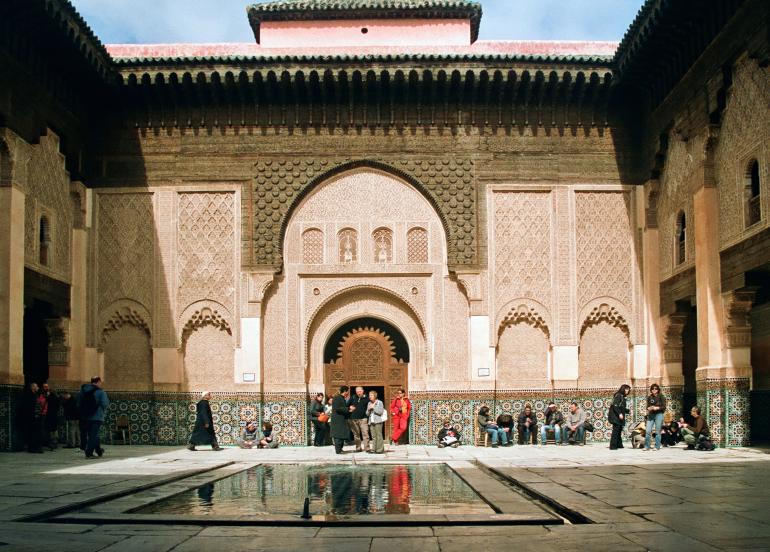Youth integration in the African labour market
The transformation of technical and vocational education and training (TVET) is underway across Africa, as a means to integrate youth into the labour market and combat poverty. Responses to the COVID-19 pandemic are also giving rise to new practices and initiatives and accelerating the transition towards more flexible and effective ways of delivering job-relevant skills. In this context, IIEP supports national and regional TVET actors in the development, implementation, and monitoring of vocational training plans and reforms, through technical support, training, research, and targeted interventions.
In Mauritania, IIEP worked with the government to improve young people’s access to employment through the development of vocational training policies and with the creation of a public-private partnership to promote youth employment and social inclusion. As part of the partnership, companies from three economic sectors –agriculture, constructions, and fishing– have identified priority jobs and developed and implemented action plans for a training supply that meets the needs of their economic sectors.
In Senegal, IIEP supported the national certification framework for the professionalization of cultural professions. In Mali, IIEP supported the National Observatory for Employment and Vocational Training in designing methodological guides and conducting satisfaction surveys of training beneficiaries and employers. Finally, in Niger, support is underway to design and implement a digital platform for the collection, processing, storage, and dissemination of labour market and training data.
Matching the supply of TVET programmes to employer demand for skilled labour force is a major challenge in many African countries. IIEP is identifying innovative practices and initiatives, mainly from the private sector, that facilitate reskilling and lifelong learning.”
Flexible learning pathways in higher education

Flexible learning pathways (FLPs) are an important new policy direction in higher education systems worldwide. As the sector rapidly expands and students become more diverse and therefore have diverse needs, FLPs seek to support students as they enter into, progress, and leave higher education. Supported by Sustainable Development Goal 4, FLPs can help address equity and fairness issues and prepare students for employability and the realities of a changing world. Exploring the broad question of how national policies influence institutional practices to foster flexibility, the research zoned in on experiences from Chile, Finland, India, Jamaica, Malaysia, Morocco, South Africa, and the United Kingdom. National webinars disseminated the findings among the country’s higher education communities while international results were shared in the 2021 International Policy Forum, which brought together experts, decision-makers, and researchers from more than 80 countries worldwide.
8 national case studies
8 country notes
8 national dissemination events
International Policy Forum
Flexibility enhances the resilience of education systems. Whether students are entering, moving through, leaving, or returning to higher education, the more flexible the learning pathways, the more likely it is that systems will be able to adapt to change and new challenges.”
Strategies for building citizenship and coexistence skills
To support the education community in developing 21st century skills, IIEP provides technical cooperation for education policies that foster global citizenship, peace, and nondiscrimination. In 2020, IIEP developed one such project for the Secretariat of Education of Bogotá, Colombia, which was supported by the UNESCO Cluster Office in Quito and the United Nations Development Programme (UNDP). The objective was to design a training strategy for the city’s pre-primary, primary, and secondary education levels with a full-day educational offer. To do so, IIEP conducted a review of similar experiences and identified best practices in order to subsequently propose up-to-date teacher qualification and pedagogical guidelines that are harmonized across all education levels where this kind of education modality is implemented.
In the same vein, IIEP provided technical assistance for the strengthening of a comprehensive social-emotional, civic and peacebuilding education programme with a strong gender-based approach. The ultimate goal of this strategy was to establish social-emotional, civic, sexual, environmental, and physical education for citizenship coexistence as central themes in all Bogotá schools.
This was a very important project, as it combined two key elements: a very innovative policy and a large population daring to go beyond schools’ premises and use the entire city as an educational experience."
